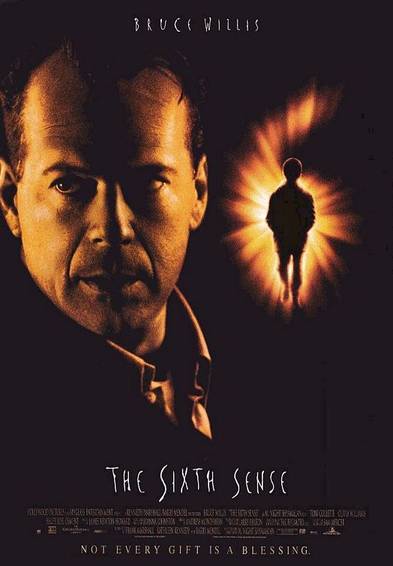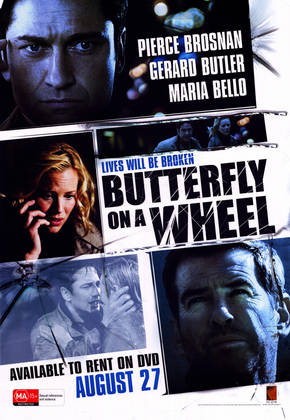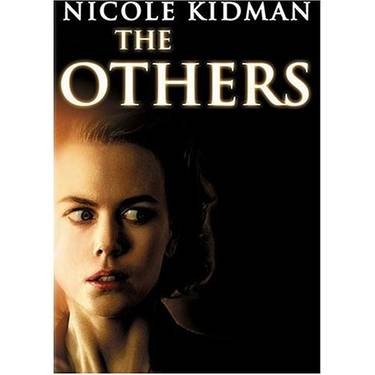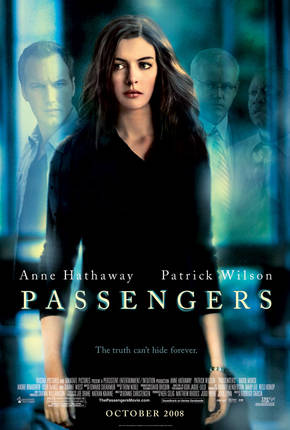“One thing guaranteed to kill a movie-going experience is an unsatisfying ending. In my opinion, the ending might very well be the single, most important moment of your script… the final taste in the audience’s mouth. For example, if you remove the twist of an ending in ‘The Sixth Sense’, would the movie have gotten such a buzz? I doubt it.”
Script Magazine, E-mail Newsletter

How important is the ending of a novel or a movie to you? Are all the works you enjoyed great from the beginning to the end?
Or have there been stories that had you from the first page only to disappoint you with the ending?
What about stories that you found merely mediocre but had to applaud the ending?
Let’s take these three groups of stories:
*The thrilling story with an unexpected, sad ending
I’m a huge John Grisham fan. I love all his legal thrillers, and I’ll consider myself so lucky if I can write such page-turners one day.
But one of favorite my John Grisham books has a bittersweet ending that I didn’t see coming. After all the brilliant things the protagonist pulled, it caught me by surprise that Grisham hadn’t given his hero a romantically happy ending.
While no one would expect cheesy or boring or happily ever after from his genre, the hint that the hero wasn’t let down romantically in the end would be just fine.
Because while he wasn’t the nicest guy on the planet, he was by far the most likeable character in the book, and I was rooting for him. No, a partially sad ending didn’t lessen my admiration for the book. But I couldn’t help wonder why Grisham wanted the hero have an ending like that.
P.S. If you are guessing or wondering which book, just ask me on Facebook.
*The thrilling story with a worthy ending
In the wonderfully exciting world of grey characters, you don’t exactly wish for a happy ending. You do want a satisfactory ending, though your definition of a satisfactory ending changes as the story progresses to reveal the protagonist to be less than a model citizen.
Gerard Butler/Maria Bello/Pierce Brosnan movie Butterfly on a Wheel is such a story for me. The kidnapper (Pierce Brosnan) “kidnaps” the parents (Gerard Butler and Mario Bello) while he has their daughter taken hostage somewhere. They either do whatever he wants, or the little girl dies. But what do you do when his requests turn out to include destroying their life savings, blackmail, career sabotage and murder?

It may not have the effect on everyone, but I love a movie where the seemingly sociopathic villain turns out to be a victim of circumstances and the so-called hero is a selfish jerk. Oh, and the ending…whether you see it coming or not, it is so much more than Gerard Butler managing to save his and his family or not.
But my favorite great concept-great story-great ending combination has to be The Life of David Gale with Kevin Spacey.
*The not-so-engaging story with a brilliant ending
(Warning: From this point on, I’ll include major spoilers for the movies The Sixth Sense, The Others & Passengers, so please proceed at your own risk. )
Maybe it was because I saw it on DVD on my friend’s PC, but I just didn’t like The Sixth Sense (1999). It wasn’t thrilling, surprising or interesting. It was a bit spooky at times, but I just didn’t see what the fuss was about…until the end came and I had to applaud the writer/director M. Night Shyamalan for his creativity.
But my love for the ending doesn’t change the fact that as a whole, I wasn’t impressed and I don’t want to see the movie again.
And the brilliant ending gave birth to:
*The once-great-now-disappointing ending
Surprise me once, congrats. Surprise me twice, fine. Pull the same trick for the third time, and lose your audience.
How many movies have you seen that are like Christopher Nolan’s Memento? And by like Memento, I mean movies that tell the story backwards, starting with the end and ending with the first scene. If I have seen similar movies, they certainly haven’t made an impression. Oh, I love Memento, by the way.
Of course another good movie using similar storytelling chronology is possible and welcome. But it just wouldn’t be as remarkable if that story ended (well, in this case, began) like Memento. Would it?

Now, I actually liked The Others (2001). Maybe it was because I created a suitable atmosphere: I watched it on a big screen TV with a friend at night, with lights off and while there was no one else at home. Any outside sound made us jump, and it didn’t let the slow pace of the movie affect us in a negative way.
When the ending came…Let’s say that it wasn’t a huge letdown, but it didn’t make us appreciate the movie further. Still, with the endings in mind, I prefer The Others. But I’m done with that kind of ending.

Then came Passengers (2008). Passengers wasn’t a thriller/horror film but a romantic mystery/drama and I enjoyed the psychological aspect of it as it told the story of plane crash survivors who try to deal with the trauma. It wasn’t ground-breaking, but it was good. Fun. Emotional. Until the moment when we learned about what really happened to the survivors. Yep, they were dead all along.
Unsurprisingly, The Sixth Sense has the highest revenue, most critical acclaim and the highest rating by movie-goers. The Others is also highly-regarded and turned in profit. Passengers didn’t make a profit, and isn’t appreciated much.
*
Can a bad, or a recycled ending take away from the experience as a whole? Absolutely. It can even make you wish you hadn’t watched/read that thing.
But can a great ending make up for 100 minutes that failed to engage you? No, not really.
Of course a great story is a story that hooks you from number 1 and never lets you go. A greater story is a story that doesn’t let you go even after it ends. The ending is one of the most crucial parts of the story. It can break it, but I’d not go as far as to say it can make a story. And the Script article covering endings unsurprisingly covers a movie that is liked from start to finish: Rocky.
What are your favorite endings?
What endings disappointed you the most?
How important is the ending to you?